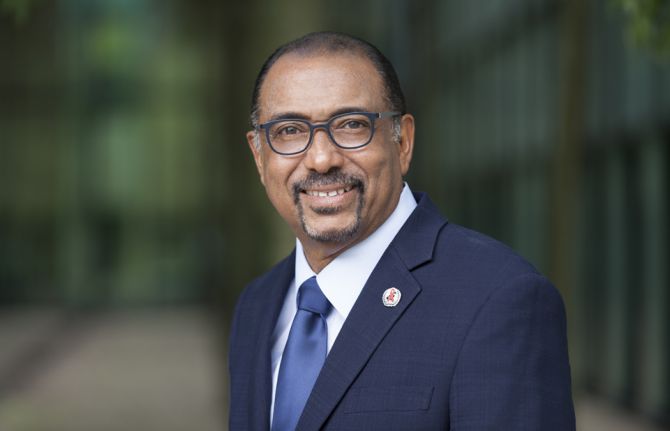

Press Statement
World AIDS Day 2018 message by UNAIDS Executive Director, Michel Sidibé
23 November 2018 23 November 20181 December 2018
This year marks the 30th anniversary of the first World AIDS Day. Thirty years of activism and solidarity under the banner of World AIDS Day. Thirty years of campaigning for universal access to life-saving services to treat and prevent HIV. But after 30 years, AIDS is still not over. We have miles to go.
World AIDS Day is a day to remember the millions of people who have lost their lives to AIDS-related illnesses, many of whom died because they couldn’t access HIV services, because of stigma, because of discrimination and because of criminalization of key populations.
On this World AIDS Day, UNAIDS is campaigning for people to know their HIV status and their viral load. In 2017, 9.4 million people were simply unaware that they are living with a potentially deadly, but treatable, disease. If people don’t know their HIV status, people who are living with HIV can’t start treatment, and people who are HIV-negative can’t get the knowledge and skills they need to keep that way. If people don’t know their HIV status, they can’t protect themselves, their families, their partners. If people living with HIV don’t know their viral load, they won’t be sure that the treatment is effective, protecting their health and stopping HIV transmission.
Live life positively. Know your HIV status.
Michel Sidibé
Executive Director of UNAIDS
Under-Secretary-General of the United Nations
UNAIDS
The Joint United Nations Programme on HIV/AIDS (UNAIDS) leads and inspires the world to achieve its shared vision of zero new HIV infections, zero discrimination and zero AIDS-related deaths. UNAIDS unites the efforts of 11 UN organizations—UNHCR, UNICEF, WFP, UNDP, UNFPA, UNODC, UN Women, ILO, UNESCO, WHO and the World Bank—and works closely with global and national partners towards ending the AIDS epidemic by 2030 as part of the Sustainable Development Goals. Learn more at unaids.org and connect with us on Facebook, Twitter, Instagram and YouTube.
